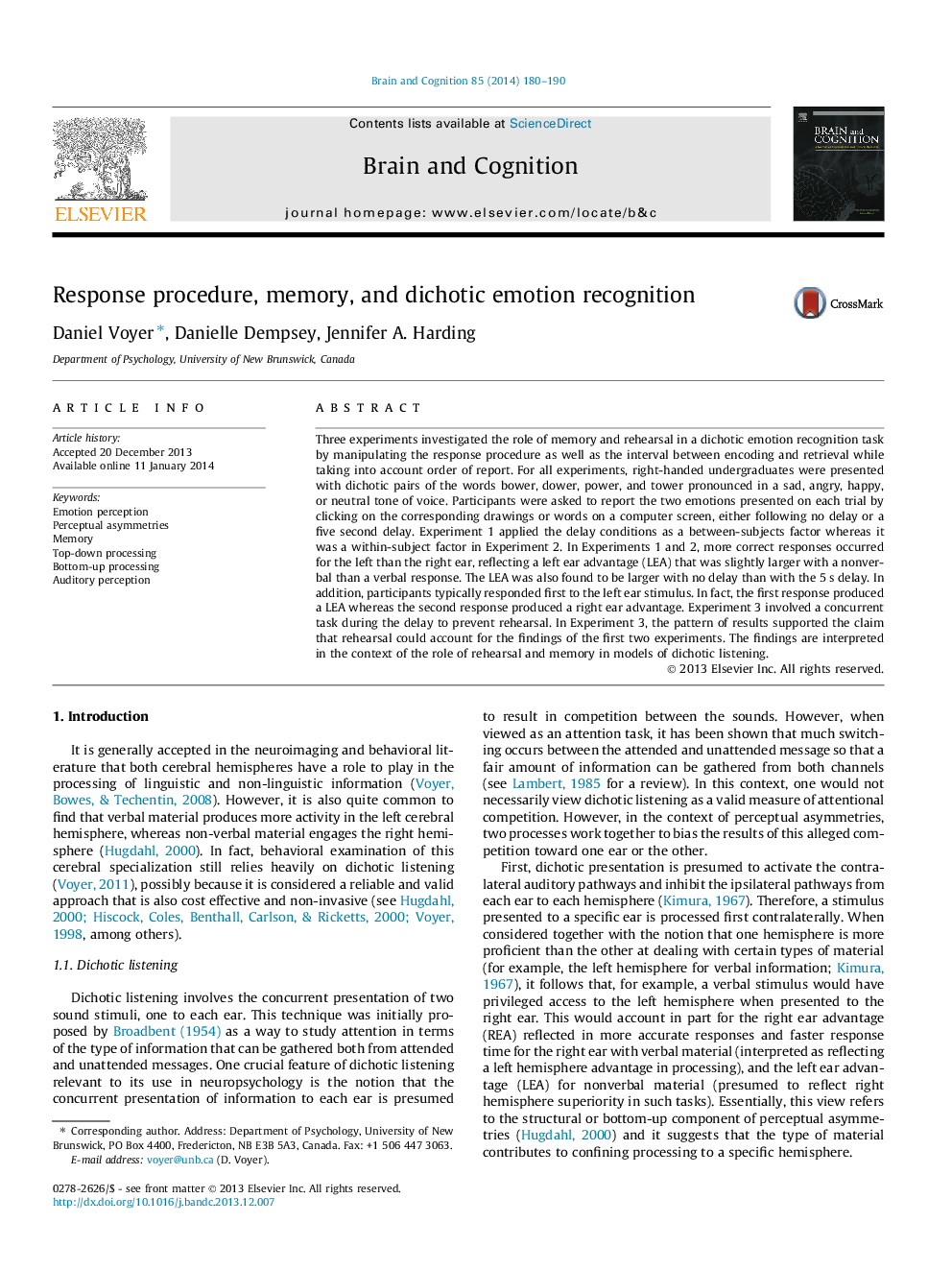| کد مقاله | کد نشریه | سال انتشار | مقاله انگلیسی | نسخه تمام متن |
|---|---|---|---|---|
| 924300 | 1473986 | 2014 | 11 صفحه PDF | دانلود رایگان |
• Three experiments investigated memory as a factor in auditory asymmetries.
• Manipulated the encoding-retrieval delay in dichotic emotion recognition.
• Left ear advantage larger without a time delay than with a 5-s delay.
• Left ear advantage on first response; right ear advantage on second response.
• Interpretation emphasize the role of memory and rehearsal in perceptual asymmetries.
Three experiments investigated the role of memory and rehearsal in a dichotic emotion recognition task by manipulating the response procedure as well as the interval between encoding and retrieval while taking into account order of report. For all experiments, right-handed undergraduates were presented with dichotic pairs of the words bower, dower, power, and tower pronounced in a sad, angry, happy, or neutral tone of voice. Participants were asked to report the two emotions presented on each trial by clicking on the corresponding drawings or words on a computer screen, either following no delay or a five second delay. Experiment 1 applied the delay conditions as a between-subjects factor whereas it was a within-subject factor in Experiment 2. In Experiments 1 and 2, more correct responses occurred for the left than the right ear, reflecting a left ear advantage (LEA) that was slightly larger with a nonverbal than a verbal response. The LEA was also found to be larger with no delay than with the 5 s delay. In addition, participants typically responded first to the left ear stimulus. In fact, the first response produced a LEA whereas the second response produced a right ear advantage. Experiment 3 involved a concurrent task during the delay to prevent rehearsal. In Experiment 3, the pattern of results supported the claim that rehearsal could account for the findings of the first two experiments. The findings are interpreted in the context of the role of rehearsal and memory in models of dichotic listening.
Journal: Brain and Cognition - Volume 85, March 2014, Pages 180–190
